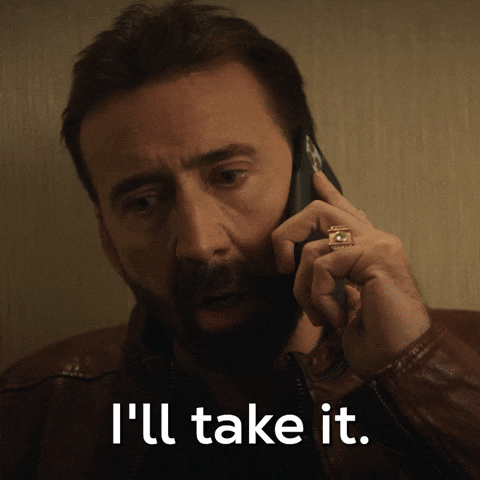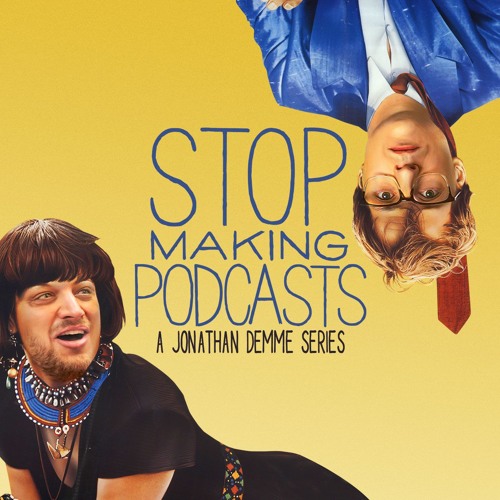- Please Consume
- Posts
- Brilliant Adaptation
Brilliant Adaptation
With the upcoming release of A Haunting in Venice, we wanted to take this opportunity to talk about our favorite pulpy book to screen adaptations. We’re discussing ‘paperback’ novels.

Good morning Consumers. This is Please Consume, the newsletter that loves movies more than Nic Cage loves taking a paycheck.

This is what we’ve got for today 👇️
Tyler kicks off our Paperback Week!
The Nun II nearly makes its budget back in 3 days.
All the latest news and notes from this weekend.
Let’s get rolling…



With the upcoming release of A Haunting in Venice, we wanted to take this opportunity to talk about our favorite pulpy book to screen adaptations. We’re discussing ‘paperback’ novels.
Also referred to as airplane novels or beach reads, these are the books you read to pass the time, books your mom discusses in book club, or the novels your dad won’t stop talking about for, like, 6 months after finishing it.
So let’s dive into this surprisingly deep well.
The Silence of the Lambs (1991)

Written by Tyler Clark
Today, we're discussing one of the best films ever, right? There's certainly a strong argument for it.
It's undoubtedly one of the most well-directed, well-shot, and well-acted films in the history of cinema. So, let's delve into what brings all these elements together to create a timeless classic.
Brilliant Adaptation
We all know The Silence of the Lambs is a masterpiece, but what often flies under the radar is that a significant part of its brilliance is owed to its skillful adaptation of Thomas Harris' novel.
Adapting a work for the silver screen is always challenging, especially when the source material is a novel. Moreover, when you're dealing with a novel as introspective as The Silence of the Lambs, the question arises: how do you adapt a book with so much internal monologue?
Well, master craftsman Jonathan Demme allows the art of filmmaking to convey Clarice Starling's inner thoughts. Rather than throwing Jodie Foster in the booth to narrate the film, much of The Silence of the Lambs explores the challenges women face in the workplace. Demme brilliantly uses the camera to express this theme.
Demme was renowned for his use of POV shots during conversations, a technique evident in many of his films from Something Wild to Philadelphia, and even in his documentary work with Stop Making Sense. Through these shots you gain insight into how Clarice perceives herself through the eyes of the men around her.
The leering eyes track her with an intensity that only such intimate angles can capture. This contrast becomes particularly pronounced in the Hannibal scenes; the dialogue highlights the stark difference between how nerdy scientists in a lab converse with her and the captivating intensity with which Hopkins interacts with Foster.
Demme skillfully emphasizes these emotions in the final sequence as Buffalo Bill dons night vision goggles and reaches out towards her. It conveys Bill's desperation to escape himself and Clarice's need to overcome fear and isolation to emerge as the hero she’s always been.
ACTING!
This entire piece could be titled "What Is There Left to Say?" This film is a perennial topic of discussion and for good reason!
The primary focus of cultural conversations often centers on the film’s actors. Every performance in the film is top-notch, from Jodie Foster's portrayal of heroine Clarice Starling to Brook Smith's portrayal of Buffalo Bill's prisoner.
We'd be remiss not to mention Anthony Hopkins' iconic portrayal of Hannibal Lecter, a performance so infamous that it spawned sequels, parodies, and debates over screen time, ultimately earning Hopkins an Oscar in the Best Actor category.
However, for my money, the most astonishing performance is Ted Levine as Buffalo Bill. The delicate balance he maintains is truly a work of brilliance. Playing it too campy would have undermined the film, making it appear ridiculous, while portraying it too realistically could have veered the film into exploitation, causing real harm to both his image and the film's reputation, as well as negatively impacting the trans community (more than it already has).
Behind Every Great Actor
In 1994, Tom Hanks won Best Actor for his role in Philadelphia, and one of the first things he mentioned in his speech was, “I am here because of the union of such filmmakers as [...] Jonathan Demme who seems to have these [Oscars] attached to his limbs for every actor who works with him of late” This statement underscores the strength of a director like Jonathan Demme.
He was a powerhouse of his era, known for his kindness towards everyone and his deep appreciation for both humanity and art. Understanding this context is crucial when watching The Silence of the Lambs. In the hands of another filmmaker, its darkness might have been more extreme.
While we often think of it as hyper-violent and cold, in reality, it’s quite sparing with the fake blood. Surprisingly, the film exudes warmth despite its subject matter. Above all, it leads with empathy, portraying Clarice with pride, Buffalo Bill with sympathy, and Hannibal with the necessary distance, akin to observing a tiger at the zoo.
Demme was a man esteemed for his integrity and empathy. Filmmakers look up to him to this day. There Will Be Blood director Paul Thomas Anderson even stated once that his three biggest influences are "Jonathan Demme, Jonathan Demme, and Jonathan Demme."
As mentioned earlier, the film unintentionally harmed the LGBTQIAP+ community upon its release, despite its efforts to clarify that Buffalo Bill is not trans and that trans individuals are not all serial killers.
When Demme became aware of this, he was deeply troubled that his art was causing such harm. He used his industry influence after winning Best Picture and Best Director to fast-track Philadelphia, a film that boldly emphasizes empathy and advocates for the humanity of the queer community while also delivering a brilliant legal drama. That is empathy through art if I’ve ever seen it and I salute the late great Mr. Jonathan Demme.
Today’s Scene
Supplemental Material:
The Silence of the Lambs is a film constantly watched, discussed, and evaluated in our culture. Therefore, there's an abundance of resources available for further exploration. The podcast, Blank Check, has an excellent episode on this film, featuring culture writer and author Emily St. James, that I highly recommend as required listening to anyone who likes this film (linked below).


This Weekend’s Top 5

2023’s Top 5



Tim Burton says he went back to basics for filming ‘BEETLEJUICE 2’.
“Working with good people and actors and puppets. It was kind of like going back to why I liked making movies.”
(Source: independent.co.uk/arts-entertain…)
— DiscussingFilm (@DiscussingFilm)
10:29 PM • Sep 9, 2023
Jordan Peele’s ‘GET OUT’ returns to @AMCTheatres for a limited time starting September 22-28.
— Film Updates (@FilmUpdates)
10:20 PM • Sep 10, 2023
The official trailer for ‘AQUAMAN AND THE LOST KINGDOM’ will be released on Thursday.
— Film Updates (@FilmUpdates)
1:43 AM • Sep 11, 2023

kdk
